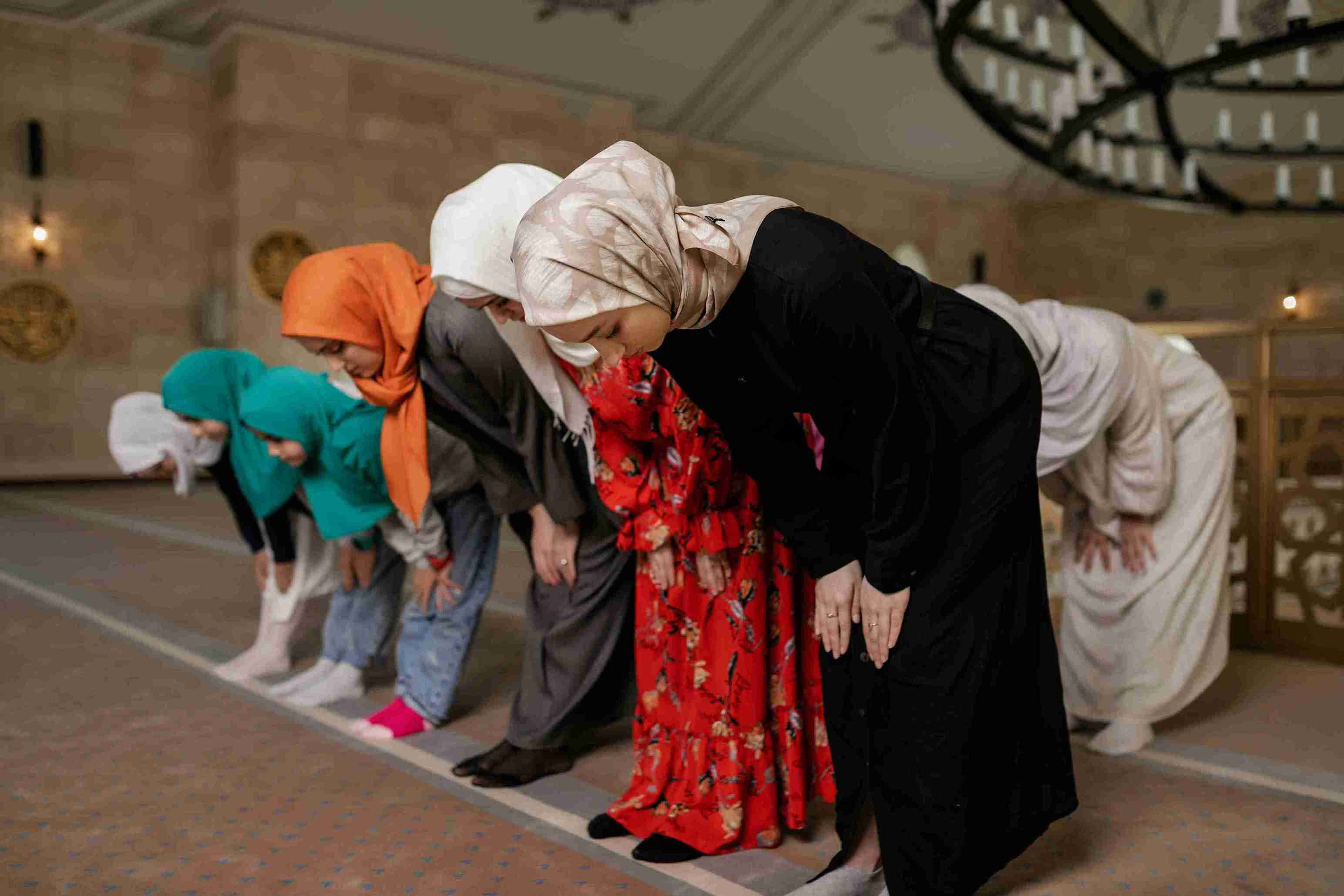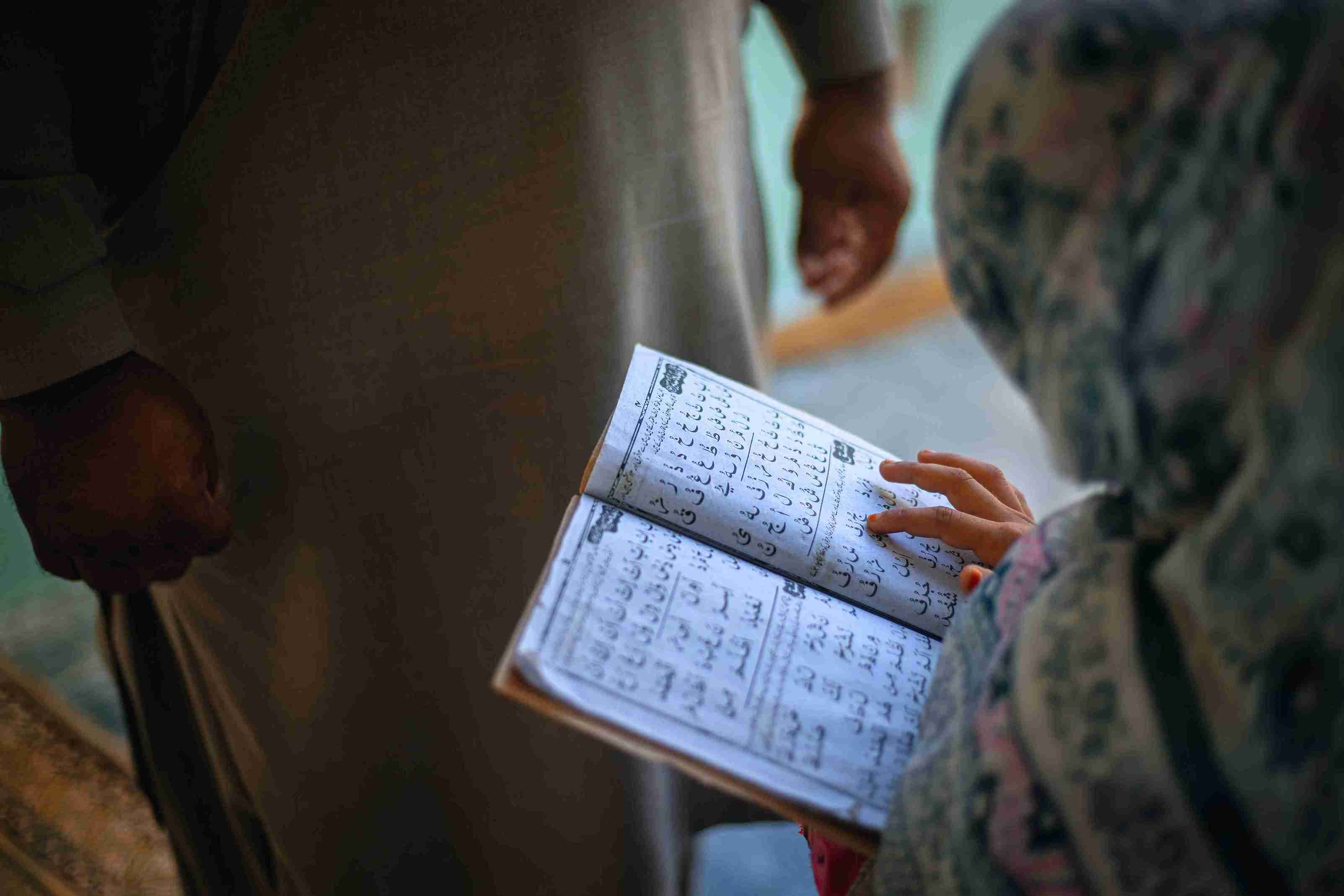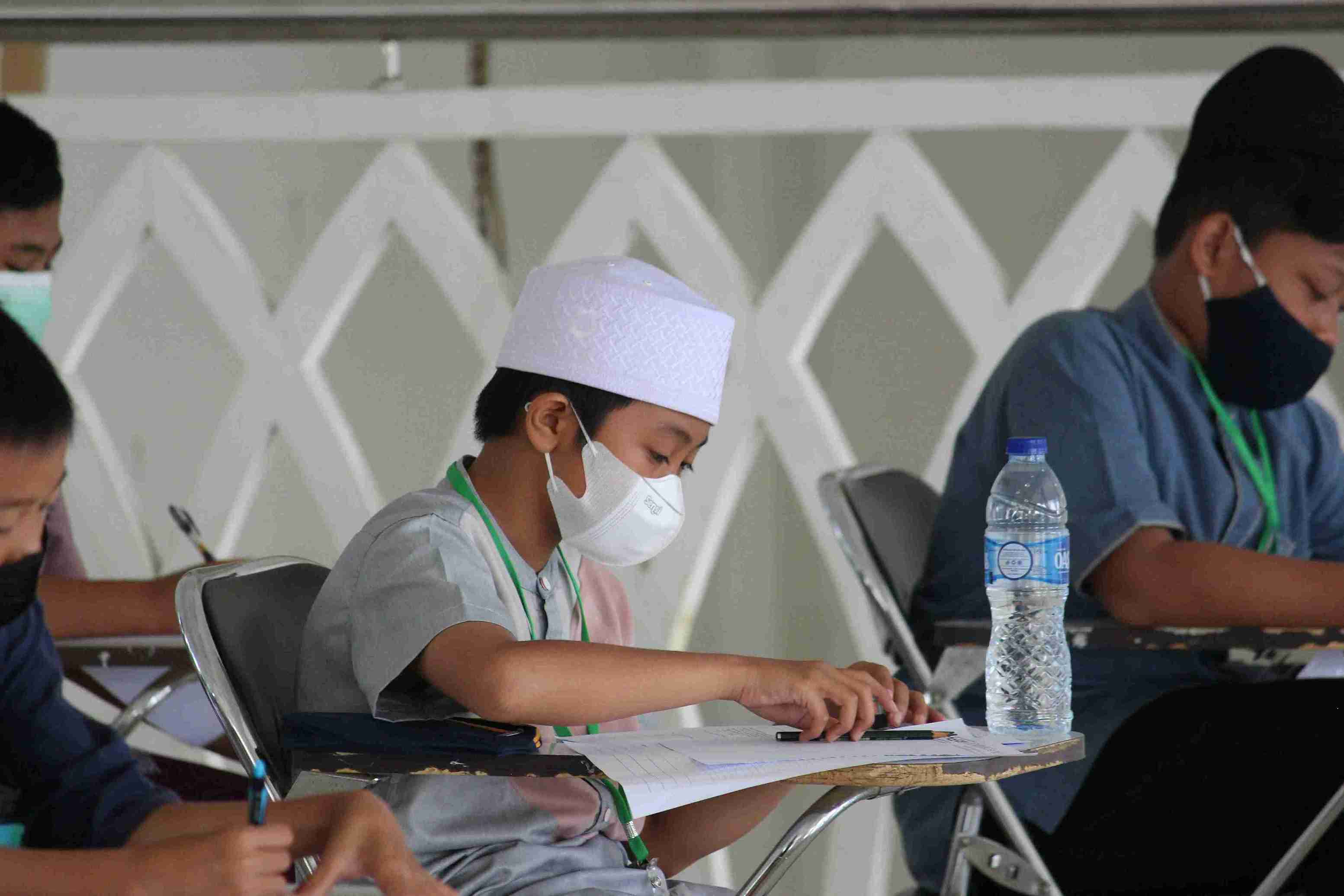
Free Shipping On Orders Above $75

By Sumayyah Hussein
Are you a Muslim parent struggling to bring up your child? Well then you need Muslim parenting principles to up bring your children according to Islam. This involves understanding your children’s emotions. Muslim parents’ mercy is needed for healthy parenting. If you are merciful to your children, they will grow up to be healthy adults. Otherwise, being neglectful destroys our children's self-esteem and confidence.

Imagine if you’re late for an important meeting, and your toddler clings to your leg and whines that he doesn’t want to go to daycare. Or your daughter comes home from school sad because no one played with her at recess. Or your son is in an awful mood after his brother won an award at school…
How you react when your children’s emotions run high teaches them a lot about the world of emotion – for better or for worse. If you ignore your toddler’s whining or tell him he’s being silly, he may learn that his feelings are not important.
If you give your daughter a hug, then tickle her so she can forget her sadness, she may learn that unpleasant emotions should be pushed away by distractions. Similarly, if you send your son to his room until he decides to snap out of his bad mood, he may learn that emotions are dangerous things, to be dealt with away from the company of people.
How we deal with our children’s emotions often stems from our own deeply-held beliefs about emotions — beliefs we may have never thought about consciously. For example, I might find expressing anger to be destructive, or a sign of helplessness, while you find it cleansing, or a way to show confidence. You might find expressing sadness to be toxic, or a sign of weakness, while I see it as productive and human.
Therefore, the way I perceive my child’s emotions affects how I react, and whether my reaction will be helpful or harmful to my child.
Awareness of emotion, then, is all-important. “Good parenting involves emotion,” not just intellect, writes John Gottman in Raising an Emotionally Intelligent Child: The Heart of Parenting. Good parenting means “being aware of your children’s feelings, and being able to empathize, soothe, and guide them.”
When I provide my child with empathy and guidance on a regular basis – when I am her Emotion Coach – she will learn how to regulate her emotions. According to Gottman, children coached in this way will be better able to “control impulses, delay gratification, motivate themselves, read other people’s social cues, and cope with life’s ups and downs.”
Gottman identifies these five steps, observed through studies of successful interactions between parents and their children:
Whether they can explain it or not, children – just like adults – have reasons for their behaviour. “Whenever we find our children getting angry or upset over an issue that seems inconsequential, it may help to step back and look at the big picture of what’s going on in their lives,” writes Gottman.
Perhaps your 3-year-old is cranky from the stress of starting a new daycare, or your 8-year-old is tense because he keeps hearing mom and dad arguing about money. In both of these examples, the child would likely be unable to explain why he is upset.
Try to see the world from your child’s perspective, to really feel what he or she is feeling. If your son’s pet bird dies, you know that the grief will pass, but he may be overwhelmed by this feeling he’s experiencing for the first time. So don’t allow yourself to view his grief as trivial.
Muslim parenting principles should include understanding your child’s emotions. You must find ways to deal with them. Similarly, Muslim parent’s mercy is needed to raise emotionally strong children. If you become strict and harsh with your children, they will develop unhealthy habits.

Children need their parents most when they are sad, angry, or afraid. Whether small or large, negative experiences in your child’s life are great opportunities to build intimacy and teach them ways to handle their feelings.
“While some parents try to ignore children’s negative feelings in the hope that they will go away, emotions rarely work that way,”
writes Gottman.
“Instead, negative feelings dissipate when children can talk about their emotions, label them, and feel understood.”
Practice listening and problem-solving while the stakes are small, acknowledging low levels of emotion before they become full-blown crises. For example, instead of waiting for your 5-year-old to have a tantrum in the dentist’s chair, explore her fear of the dentist the day before the visit.
In the same way, by showing concern over your child’s broken toy or minor scrape, you add building blocks to your relationship with your child and send frequent messages that you are his ally. Muslim parents’ mercy is the key to raise emotionally strong children.
Kindness and understanding are the key tip for Muslim parenting principles. When you show your concern for your children’s emotions, they grow up to be emotionally strong. This in turn makes them able to be kind to their children as well.
You are not only raising your child but also doing a favour to your generations.
Listening with empathy is the most important step in Emotion Coaching. It must be a part of Muslim parenting principles. Sit at your child’s level, relax, and be attentive.
“Empathetic listeners use their eyes to watch for physical evidence of their children’s emotions,”
writes Gottman.
“They use their imaginations to see the situation from the child’s perspective. They use their words to reflect back, in a soothing, noncritical way, what they are hearing and to help their children label their emotions. But most importantly, they use their hearts to feel what their children are feeling.”
Instead of finding the logic behind your child’s emotions, try to understand them. When you show your care, you will make them feel seen and heard.
Hold yourself back from applying logic to the situation; just acknowledge your child’s feelings. For example, if your son is in a bad mood after his brother won an award, avoid saying, “Don’t worry, I’m sure you’ll win something next time.”
Instead, say, “You wish you had won an award too. That probably makes you feel kind of jealous.” Also, resist giving advice. It is better to just listen and then guide your child to come up with solutions of his own.
Gottman also suggests sharing simple observations instead of asking probing questions. For instance, your child may not always be able to answer the question, “Why are you sad?” but is more likely to open up with an observation like, “You seem a little down today.”
Finally, sharing examples from your own life – that time your friends were mean to you or how jealous you were of your sister when she won first place in the science fair – can show your child that you understand how he’s feeling.

Another part of Muslim parenting principles should be labelling the emotions. Providing words to label emotions can transform a scary, uncomfortable feeling into a manageable and normal part of life, writes Gottman.
Studies show that labelling emotions can have a soothing effect on the nervous system, which helps children recover more quickly from upsetting incidents. (Children who can calm themselves from an early age are more likely to have better concentration, better peer relationships, higher academic achievement, and good health.)
And the more precisely kids can express their feelings in words, the better. For example, “angry” can be even more specific: frustrated, enraged, confused, betrayed, jealous. And “sad” can mean hurt, left-out, jealous, empty, or gloomy.
In addition, if your child is having mixed feelings about something – for example, he feels both proud and anxious to be going off to camp for the first time – it would help if he knew that having these two feelings at the same time is normal.
Muslim parents’ mercy is the key.
Muslim parenting principles must also include problem solving techniques. Whenever your child is involved in a problem, understand his emotions.
Especially for small children, problem-solving often starts with setting limits on inappropriate behaviour, Gottman writes. If your child misbehaves, acknowledge the emotion behind the behaviour and help your child label it, then make sure your child understands that some behaviours are not appropriate and can’t be tolerated.
Next, guide him to think of more appropriate ways to handle his negative feelings. For example: “You’re mad that Danny took that game away from you. I would be, too. But it’s not okay for you to hit him. What can you do instead?”
This leaves the child’s self-esteem intact: you’re not telling him how to feel but setting limits on how he expresses those feelings.
Gottman advises parents to let their children know the consequences of following rules or breaking them. These consequences are most effective if they are consistent, fair, and related to the misbehaviour.
When guiding your child to come up with possible solutions, encourage younger children to role-play the right and wrong scenarios, and older children to brainstorm ideas (without evaluating) while you write them down.
Now you can evaluate the proposed solutions based on your family’s values or the child’s positive qualities. Encourage your child to answer these questions: Is this solution fair? Will it work? Is it safe? How will it make me feel? How will it make others feel?
To help your child choose a solution, you may want to relate similar experiences from your life. Encourage your child to have a plan for evaluating how well the solution is working. If it fails, help her analyze why and problem-solve again.
To emphasize the power of Emotion Coaching, Gottman relates in his book how he first used it with his own daughter, two years old at the time. They were on an airplane, and her favourite stuffed animal had mistakenly been packed in the checked luggage.
Tired and cranky, she whined for her toy. Dad explained to her that it was in another part of the plane, and they couldn’t get it. She became more frustrated. He suggested she read her favourite book, but that made her even angrier.
He suddenly realized that his explanations and distractions were just making her more upset, and what he could give her was a father’s comfort. He said, “You wish you had Zebra now. And you’re angry because we can’t get him for you…You’re tired now, and smelling Zebra and cuddling with him would feel really good. I wish we had Zebra here so you could hold him.” She became calmer as he continued to show her that he knew how she felt, and she soon fell asleep.
We all try our best to be good parents, but there is still so much to learn. The next time you find yourself disregarding your son’s sadness, or punishing your daughter for expressing anger, stop yourself. Think about the emotion your child is experiencing, see it as an opportunity for intimacy, listen with empathy, label the emotion, set limits and search for solutions.
As Muslims, we know that our children are an Amanah from Allah, so we should treat them with mercy and kindness. We also know that we are being tested on how we treat and bring up our children. We must follow Muslim parenting principles to raise strong children.
Our children need our guidance to learn how to handle their emotions appropriately. Empathy is powerful, and it should always be at the centre of our relationship with our children.
Sumayyah Hussein is a teacher, writer, and mother of two girls.





.webp)

7.99
7.99
7.99


7.99
7.99
7.99
Limited Edition
August 6, 2025
Ramadan
Adventure
Family